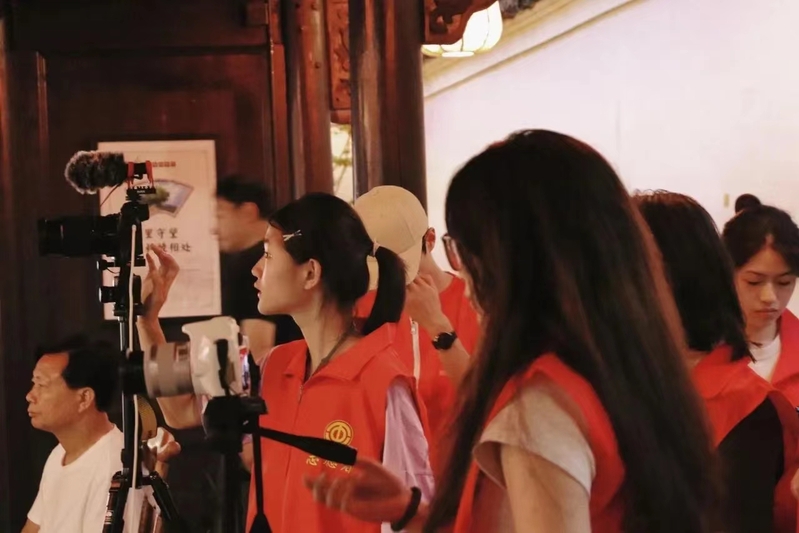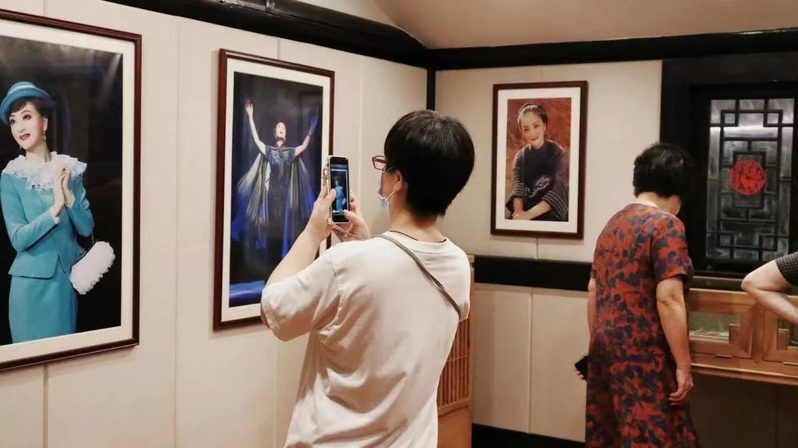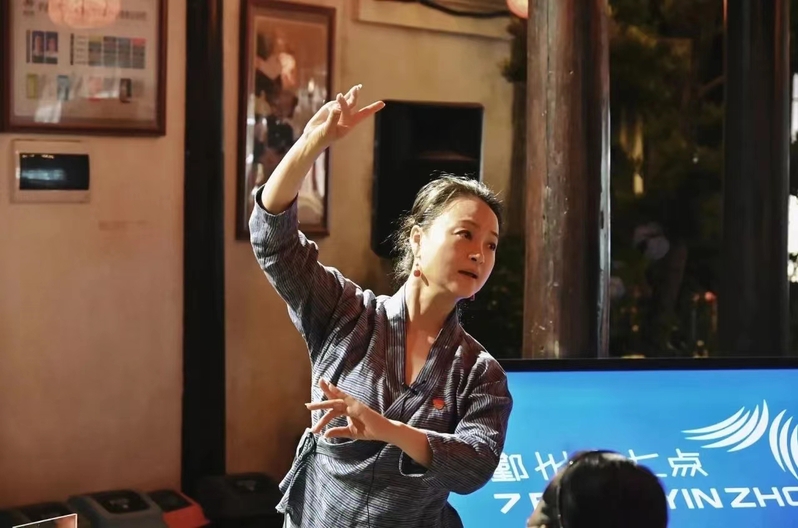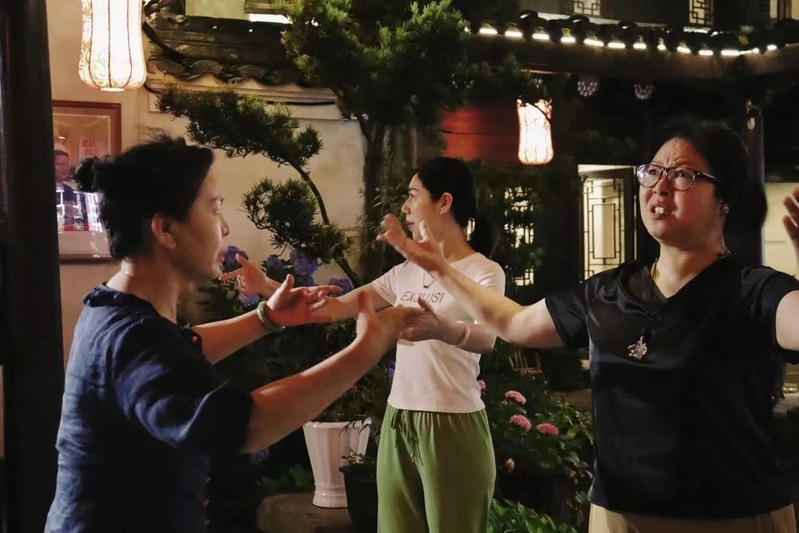



To popularize knowledge about Yong Opera (also known as Ningbo Opera) and promote its artistic achievements, from June 6th to 27th, the “All in Yong Opera” summer practice team of the School of Culture and Communication entered the Yong Opera Art Museum. They attended the “Yong Opera Classroom”, assisting museum staff with on-site tasks and recording work.
“Upon the sound of the gong and drum, the curtain opens, and out comes a female character with delicate posture and elegant makeups.” Most people’s impressions of opera performers are no more than this. This summer, the practice team had a chance to listen to Wang Jinwen, a master of Yong Opera, who told them about the unknown behind-the-scenes stories of the inheritance of Yong Opera.
“How quaint it is!” With the authentic sound of Ningbo dialect, the audience entered the Yong Opera Classroom, and the curtain gradually rose. With black tiles, white walls, and green brick reliefs, a deep courtyard stands quietly among the high-rise buildings in the city—this is the Ningbo Yong Opera Art Museum (hereafter referred to as the “museum”). The courtyard, known as “Peaceful Residence”, was built during the Guangxu period of the Qing Dynasty and has a history of over 100 years. The museum consists of a corridor, the main building, wing rooms, and three exhibition rooms. The exhibits and arrangements in the museum, such as costumes, aged musical instruments, phonographs, sewing machines, and yellowed old scripts, witness the development of Yong Opera over the years. Dynamic displays, such as the holographic images of classic Yong Opera scenes and images from the multimedia projectors, allow people to vividly experience the outstanding regional culture of Ningbo.
A few fragmented moments can construct a drama, or even an eternal art form. Unseen behind the brilliance of these moments and scenes, however, are the efforts of the creative team. Wang Jinwen said that she feels very fortunate to have received guidance from the first generation of Yong Opera artists such as Xu Fengxian. Yong Opera has faced difficulties several times, but her love for it has never wavered. Training is extremely arduous, but Yong Opera performers are defying all this and continue to pass it on from generation to generation.
The road of inheriting Yong Opera is long and challenging, and passion is the source of motivation for moving forward. “Learning has no end,” says Wang Jinwen, her eyes always shining with enthusiasm whenever she talks about her performing career. She emphasizes that art requires accumulation, and every detail in a traditional opera performance should be treated as a subject of research. In terms of body movements, every action, such as when a character turns around, walks, lifts their hands, or moves their feet, is carefully designed. In terms of singing skills, the melody, lines, pronunciation, and vocal position all require careful consideration. The meticulous and creative spirit is vividly reflected in artists like Wang Jinwen.
However, for Yong Opera to thrive, passion alone is not enough. Perseverance is essential for cultural prosperity. In the year 2000, facing the endangered situation of Yong Opera, Wang Jinwen took on the role of the director of the Ningbo Yong Opera Troupe. After a tense discussion, the troupe decided to invite top artists from across the country to collaboratively create the opera “Dian Qi” (Wife in Hock). From conducting field research in various places to refining the script, the members were meticulous in every aspect. While preserving the traditional artistic characteristics, “Dian Qi” was rendered with audio-visual means, and the attempt was bold and successful. It was highly praised for “achieving a qualitative leap from local rural culture to urban culture, completing the transformation of a small drama form in one go”.
Currently, the development of Yong Opera is still far from optimistic, and how to modernize traditional art is always a difficult task that Yong Opera artists have been contemplating and experimenting with. Wang Jinwen says, “Traditional art requires our unwavering dedication, making sacrifices for it, treating it as our own career. We need to endure hardship and resist temptations.” During the lecture, Wang Jinwen led the audience to appreciate two classic Yong Opera works, “Dian Qi” and “Daida Shao Xiang” (lit. Daida burns incenses). Through a comparison of these two works from the early Tanhuang period and the modern period, the audience gained a more vivid understanding of the different performance styles and stage arts of modern Ningbo Opera compared to the past.